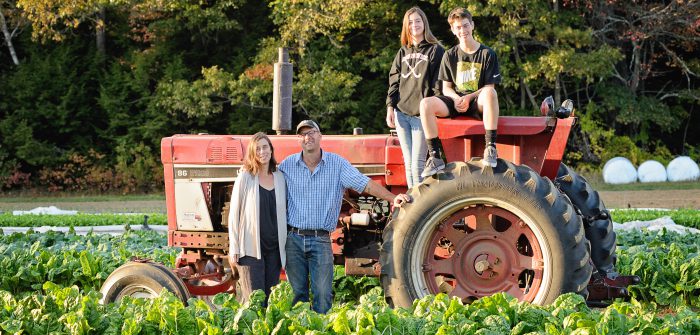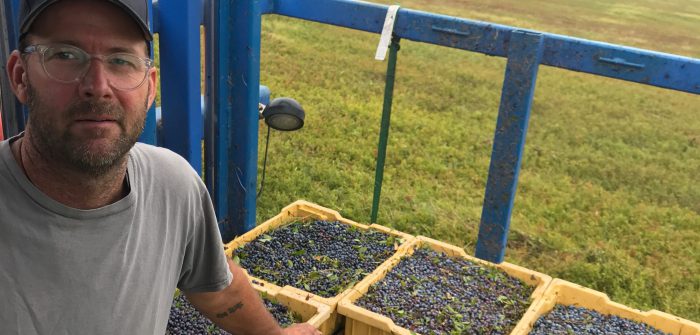
Last winter, farmers in Maine may have had little hope of still being in business in the spring of 2021, given how their businesses were rocked by the pandemic. But for many, their fortunes quickly changed when Coastal Enterprises Inc. (CEI), Maine’s longtime community development financial institution (CDFIs), stepped in to administer millions of dollars in 2020 CARES Act assistance to farmers across the state.
In just 25 days during December 2020, CEI administered $17.4 million in CARES Act funding to 437 farmers, producers and processors across the state. The grants ranged between $1,000 and $100,000 for pandemic-related infrastructure investments, making unplanned e-commerce investments, and more. For some, the grants literally saved their businesses. While CEI is a lender and not a grant-making agency, it is an example of how CDFIs can rise to the challenge of disbursing the funds gladly.

“This was one of those moments where grant money would have a profound effect on the farm and food community, and it was exactly what was needed at this time,” Gray Harris, a senior vice president at CEI, told TriplePundit.
As Harris explains, these were reimbursement grants—meaning that farmers and food producers did not know that this grant would even exist when they invested in their businesses in response to the pandemic. As 3p has reported, Maine farmers were not alone as producers across the country had to pivot quickly to survive during the height of the pandemic.
“People invested in their businesses at a time of extraordinary economic uncertainty, without perfect information, adjusting their plans and strategies, believing that to take that risk was better than doing nothing at all. I find that extraordinarily inspiring. How could we not step up to support them?” she said.
Community lending as support for the ‘unbankable’
CDFIs have a particular focus on so-called “unbankable” businesses – those entrepreneurs without the kind of balance sheets and histories that banks require. While this was not a criteria of the CARES-Act funded grant program, Harris says some of those who benefited may have fallen into this category.
“These are businesses that often have a hard time obtaining loan capital from conventional banks, due to any number of risk factors, perceived or real, the high-risk nature of an industry dependent on and at the mercy of the weather; start up or early stage of the business with little track record; establishing a brand and difficulty in breaking into new, emerging and unproven markets; limited business assets to offer as collateral; low margins with long trajectories to scale,” Harris explained.
Often, she adds, the limiting factor is simply domain expertise. “The importance of farm and food business lending expertise cannot be overstated enough - farming, but really any food business that relies on farming as a part of its supply chain, require lenders to have specialized knowledge to really finance them properly, and that takes time and commitment.”
CDFIs, she explains, “know their communities and the networks in which the businesses exist; and can use that relational data to support underwriting.”
CEI’s ability to support small businesses got a big lift last December with a $10 million gift from billionaire philanthropist MacKenzie Scott; It was among 384 nonprofits selected for their ability to provide immediate support to people suffering the economic effects of the pandemic. For CEI, Harris says, the gift was “an extraordinary recognition” of the organization’s 40-year track record and a validation of its work using community capital as a form of economic justice.
Innovative lending from CDFIs allowed farmers to pivot
Matt Griffeth, co-owner of Griffeth Farms in Limestone, Maine, which grows potatoes for producers like such as McCain Foods and Frito Lay, as well as feed barley for the beef industry, told 3p that the funds for CEI from the CARES Act “allowed us to stay ahead of the curve for the new food safety protocols that we have had to adopt since COVID 19 happened. The majority of our processors’ product is sold in restaurants, so we have really had to change our thought process on marketing potatoes and keeping employees and food safe.”

For Seth Kroeck, co-owner of Crystal Spring Farm in Brunswick, Maine, which has 187 acres of crops such as wild blueberries and hay, the funding from one of Maine's leading CDFIs also made a significant impact on the farm’s operations and bottom line.
“After the dust of last spring settled, we, like most farms and small business, started making plans on how to pivot both our operations and our marketing goals for the pandemic,” he told 3p. “Valuable cashflow was spent on safety equipment and PPE for staff in the field and making deliveries. More space in barns and new work surfaces in buildings where we wash and pack had to be setup and purchased. Having financial support to make these changes without hurting our bottom line allowed us to continue on growing and packing produce right through the year.”
Kroeck is all too familiar with the obstacles for obtaining capital for smaller agricultural businesses like his. “Lending is a huge obstacle for small- and medium-size farms. Commercial lenders don’t know what to do with us,” he said.
He thinks it is time this changed: “With all of the challenges we have seen to national supply chains over the past year I think the value of regional and local food systems should be clear to everyone.”
That would include investors, who, as 3p reported last week, may be missing the multi-billion dollar opportunity presented by transformative investment in climate-smart agriculture.
Kroeck would like to see state and federal support of smaller-scale farm lending systems that are not tied to commercial banking. He commends examples like CEI’s loan program Wicked Fast and the U.S. Department of Agriculture’s Farm Service Agency (FSA) Farm Storage Facility Loan (FSFL) that offer a quick turnaround, low interest and are geared toward loans of $50,000 or less.
“These types of lending programs could be a model going forward,” he added.
Harris agreed. “We move capital into places that are overlooked and underinvested, creating economic inclusion and resilience. It’s a model that is needed more than ever as we recover from a global pandemic and transform our economy with a focus on equity and environmental sustainability.”
Image credit: Mario Mendez/Unsplash

Based in Florida, Amy has covered sustainability for over 25 years, including for TriplePundit, Reuters Sustainable Business and Ethical Corporation Magazine. She also writes sustainability reports and thought leadership for companies. She is the ghostwriter for Sustainability Leadership: A Swedish Approach to Transforming Your Company, Industry and the World. Connect with Amy on LinkedIn and her Substack newsletter focused on gray divorce, caregiving and other cultural topics.














